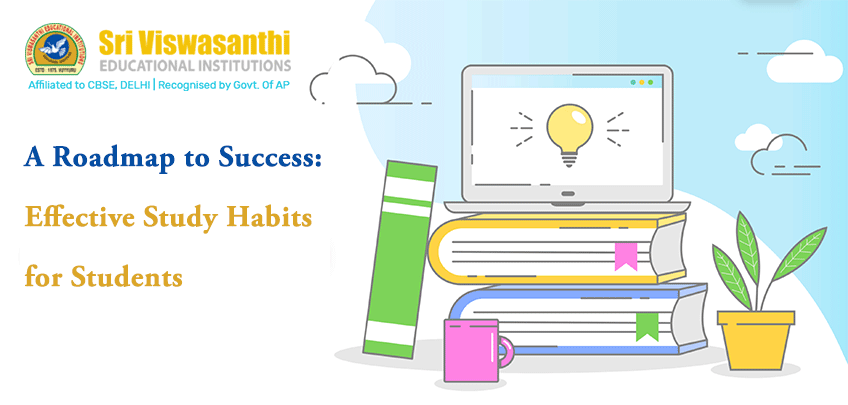

Success in academics isn't just about innate talent; it's about adopting effective study habits. Whether you're a high school student preparing for exams or a college student aiming for top grades, the right study habits can make a world of difference.
In this blog post, we'll provide you with a roadmap to success by offering tips and techniques to help you develop effective study habits and improve your learning outcomes.
Set Clear Goals
Before diving into your study sessions, set clear and achievable goals. Define what you want to accomplish during each study session, whether it's completing a specific chapter, mastering a concept, or solving a set of practice problems.
Create a Study Schedule
Consistency is key. Establish a study schedule that aligns with your daily routine. Allocate dedicated time slots for studying, and stick to them as closely as possible. A well-structured schedule helps you manage your time effectively.
Find a Productive Study Space
Your study environment plays a significant role in your productivity. Choose a quiet, well-lit, and organized space with minimal distractions. Ensure that all the necessary study materials are within reach.
Summarize and Teach
After reading a section or completing a topic, try summarizing what you've learned in your own words. Better yet, teach the material to someone else,
whether it's a family member, friend, or even an imaginary student. Teaching reinforces your understanding and highlights areas where you need further clarification.
Use Flashcards
Flashcards are a versatile tool for memorization. Create flashcards for key terms, concepts, or equations, and review them regularly. Flashcards engage your memory and facilitate quick recall.
Practice with Problems
Uninvolved parents are often disengaged and neglectful. They may have little knowledge of their child's activities and may not provide emotional support or guidance.
Active Listening
During lectures or while reading, actively listen or read for key points and concepts. Highlight or underline essential information. This selective approach ensures that you focus on the most relevant material.
Organize Your Notes
Maintain organized notes by using headings, bullet points, and subheadings. This structure makes it easier to review and revise your notes later. Color-coding and highlighting can also enhance organization.
Review Regularly
Review your notes periodically to reinforce your understanding. A weekly or bi-weekly review of previously covered material helps consolidate your knowledge.
The Pomodoro Technique
The Pomodoro Technique involves breaking your study time into intervals, typically 25 minutes each, followed by a short break. After completing four intervals, take a more extended break. This method can boost productivity and prevent burnout.
Eliminate Distractions
Turn off your phone or put it on silent mode during study sessions. Block distracting websites or apps. Create a focused study playlist if music helps you concentrate.
Set Realistic Goals
Don't overload your study sessions with unrealistic goals. Be realistic about what you can accomplish in a given timeframe. Setting attainable objectives prevents frustration and anxiety.
Get Adequate Sleep
Quality sleep is crucial for memory consolidation and cognitive function. Aim for 7-9 hours of sleep per night, especially during intense study periods.
Stay Active
Regular physical activity improves blood flow to the brain and reduces stress. Incorporate exercise into your daily routine to boost your overall well-being.
Healthy Diet
Fuel your brain with a balanced diet rich in nutrients. Omega-3 fatty acids, antioxidants, and vitamins support cognitive function.
Ask Questions
Don't hesitate to ask questions when you're uncertain about a concept or topic. Seek clarification from your teachers, or friends. Understanding is a crucial step towards effective learning.
Study Groups
Join or form study groups with classmates. Collaborative learning allows you to exchange ideas, discuss complex topics, and gain different perspectives.
Professional Assistance
If you're facing persistent challenges in a particular subject, consider seeking professional tutoring or academic support. Many educational institutions offer resources to help struggling students.
Effective study habits are the key to unlocking your academic potential. By setting clear goals, creating a study schedule, adopting active learning techniques, taking effective notes, managing your time, prioritizing self-care, and seeking help when needed, you'll pave the way for success.
Ready to excel in your academic journey? Explore the enriching educational opportunities at Sri Viswasanthi Educational Institutions.